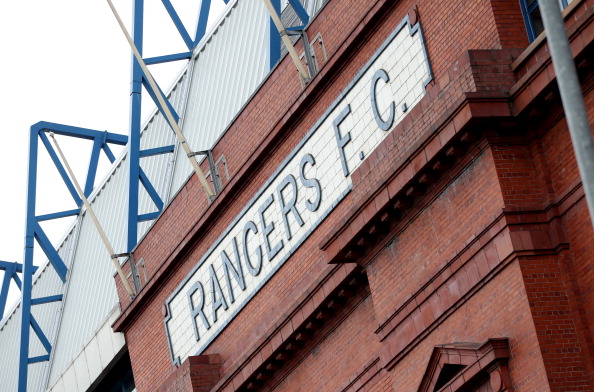By Mark Baber
March 24 – Scottish giant Rangers, poised for a return to the Scottish Premier League, have reported operating losses increased by 11% to £9.04 million for the financial year to June 30, 2015. The Rangers Football Club Ltd (TRFCL) audited accounts also show debt owed to their parent company Rangers International Football Club Plc (RIFC) increasing by 16% to £18.1 million (2014: £15.6 million).
With the club at last on the verge of promotion to the Scottish Premier League and looking forward to a Scottish Cup semi-final fixture against Old Firm rivals Celtic on April 17, the figures reveal the depth of financial hurt the club suffered as it climbs back from the lower divisions. The fan boycott aimed at the previous board also impacted significantly.
The picture the accounts paint makes for grim reading, with TRFCL racking up pre-tax losses of £6.85 million in the 2015 year, but down from a £7.76 million pre-tax loss in 2014 with turnover for the year down almost 10 per cent to £15.4 million.
Revenue was down across gate receipts and hospitality, sponsorship and advertising, broadcasting rights and commercial.
First team costs totalled £6.2 million for the 2015 year, down from £6.5 million in 2014, with overall staff costs falling 11% to £12.3 million, accounting for 80% of turnover. The club is, of course, dependent on loan players currently.
With promotion imminent, the auditors warn in their report that the company’s ability to continue to operate in the next 12 months “is dependent on its ultimate parent entity raising additional finance and continuing to provide support to the company.”
It is noted in the accounts under ‘post-balance sheet events’ that “certain shareholders, directors and new investors” provided £5.7 million of funding post year end, of which £5 million was used to repay a loan from SportsDirect.com Retail Ltd and the remaining amount was made “available for working capital purposes.”
This is significant as the club battles to get out from under the shadow of Mike Ashley’s influence that caused the fan discontent and boardroom battles. The club is looking to get control back of its money-making retail operations which were hived off into a separate company with major shareholding from and management by Ashley’s Sports Direct.
The company also notes that RIFC has provided written representations, signed off on January 31, 2016, that it will “not call in the intercompany balances due and will continue to provide financial support for at least 12 months from the date of the report.”
Whether expectations that Rangers will provide the kind of robust challenge to Celtic dominance from which Scottish football as a whole could benefit, may well prove to be true, but the figures indicate Rangers Football Club Ltd will need additional external finance to ensure that dream comes true.
Contact the writer of this story at moc.l1731818641labto1731818641ofdlr1731818641owedi1731818641sni@r1731818641ebab.1731818641kram1731818641

